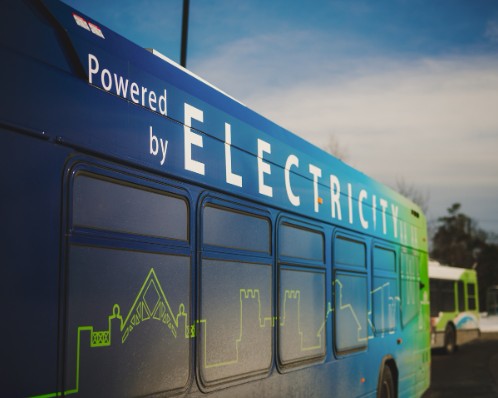
Guelph Transit has annouced some big changes coming to how the city is investing in our public transportation. As transit users, we need to understand what this means for our daily commutes, our city's green goals, and the future of our transit system.
A Smart Investment or a Step Back?
The most significant shift in the plan is a strategic reallocation of funds. The city is taking a portion of its federal and provincial funding, originally earmarked for buying new electric buses, and instead using it to build the new Guelph Transit and Fleet Services Facility. This decision has pros and cons.
On the one hand, this is a very practical move. You can't run a fully electric fleet without the proper infrastructure—things like charging stations, specialized maintenance bays, and a new facility to house it all. By prioritizing the facility, the city is building the foundation for a sustainable transit system. It's a long-term play that says, "We're not just buying a few electric buses; we're preparing for a future where our entire fleet is electric."
However, this also means the full transition to an electric fleet will be delayed. For those in the community who want to see Guelph lead the way in green initiatives, this will be seen as a setback. While some electric buses have already been received, the overall timeline for a fully zero-emission fleet has been pushed back.
Making the Most of What We Have
To bridge this gap, the city is also reallocating funds to refurbish some of our current diesel buses. This is a smart, short-term solution. By extending the life of the existing fleet, we can maintain reliable service and avoid disruptions while the new facility is under construction. It's a pragmatic approach to managing the transition without sacrificing quality of service while still delivering on some community climate goals. However, there are many unanswered questions like why aren't we looking at hybrids, smaller buses, and new or used diesel buses to keep the plan moving forward and on time?
Other projects are also being adjusted. The budget for digital signs has been reduced due to a revised scope, and the Conestoga Route project will now focus on retrofitting two diesel buses instead of a larger-scale overhaul. These changes show the city is being careful with its spending and revising plans to fit new realities.
What’s Next?
To keep the city's charging infrastructure moving forward, City Council is being asked to advance $5,000,000 for Electric Bus Charging at Central Station (TC0090) from the 2026 forecast to 2025. This will be funded with 31% from the Canada Public Transit Fund and 69% from the 100RE Reserve Fund. This allows procurement to begin sooner.
As transit users and advocates, we need to keep a close eye on this process. We should encourage the city to be transparent with its timeline and to clearly communicate its long-term vision. The path to a sustainable transit system may be longer than we hoped, but with smart planning and community engagement, we can make sure Guelph gets there.
What you can do
Join the Transit Action Alliance of Guelph (TAAG) as a member, join the board or one of our committees, and help hold city hall accountable.
Just the Numbers
Here is a numbers-focused summary of the changes to the Guelph Transit Future Ready Plan:
- Bus Electrification (TC0070): A budget of $20,866,624 is being reduced.
- Uncommitted ICIP funds (federal/provincial/municipal matching) are being decommitted and transferred.
- Remaining municipal funds are being reallocated for diesel bus refurbishments.
- $7.5 million has already been spent or committed for this project, which includes the delivery of six zero-emission buses.
- Guelph Transit and Fleet Services Facility (TC0059): A budget of $13,682,875 is being increased.
- This project is receiving the decommitted ICIP funds from the Bus Electrification project.
- An additional $15.2 million in uncommitted funds are now budgeted for this project, with construction planned for 2026.
- $6.2 million has been spent or committed on this project to date.
- Bus Replacements and Refurbishments (TC0097):
- A budget reduction of $687,750 is noted based on 2026 budget assumptions.
- This project is receiving reallocated municipal funds from the electrification project for diesel bus refurbishment.
- $6.3 million in uncommitted funds remain for this project, with refurbishment currently in the procurement stage.
- Digital Signs (TC0072): A budget reduction of $350,000 is noted due to a revised scope.
- Conestoga Route Requirements (TC0094): A budget reduction of $1,826,000 is noted due to a revised scope that now focuses on retrofitting two diesel buses.
- Transit Capital Program:
- Total capital spending to the end of Q2 was $12.5 million.
- An additional $7.3 million is in purchase order (PO) commitments.
- The remaining unexecuted budget is $38.0 million.
- ICIP Projects (TC0079, TC0078, TC0092, TC0096):
- The total adjustment is a reduction of ($75,028) from Federal and Provincial grants and ($58,517) from Development Charges.
- Outstanding Receivable: There is an outstanding ICIP receivable of $12.9 million.
Source: City of Guelph
Join TAAG as we fight for better transit > Sign up for free at taaguelph.com/join
